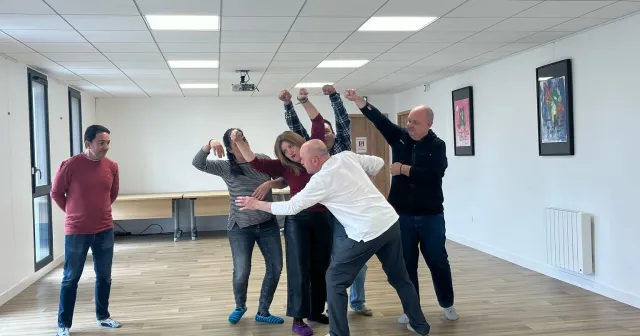Free Online Courses for Elderly People
1. Healthy Ageing in 6 Steps: Let your environment do the work (EdX)
Learn how to make healthy choices and adjustments to your lifestyle and environment to help you live a healthier, happier and longer life.
About this course: Many health complaints, such as cardiovascular disease, diabetes or joint problems seem inescapable diseases of old-age, but originate mostly from our lifestyle. A lifestyle that is largely dictated by our environment. The mismatch between our 'old' genes - our evolutionary heritage - and the 'modern' environment is the reason that we cannot resist the constant stimuli that seduce us to make unhealthy choices. Do's and don'ts cannot help us. This health course will take a radically different approach to showing you how to secure a lifestyle, which will keep you healthy throughout the lifespan. We have to let the environment do the work for us. By making small changes at our home, work, school or neighbourhood, healthier choices can become easier and automated. Practical assignments will give you the skills to re-design your daily environments to promote healthy, longer lives for you and your family, colleagues and neighbours with whom you share your re-designed environments. You will learn how to create your own healthy living zone!
Click link for detail information about course
2. Why Do We Age? The Molecular Mechanisms of Ageing (FutureLearn)
Why do we age? Is there a limit to human lifespan? Can we prolong our lives? Find out with this free online course.
About this course: The “why” and “how” of ageing has puzzled mankind ever since it questioned its place in the universe. However, it was only after infectious diseases became more controlled and reliable food supplies became generally available, that the rapid increase of the average lifespan made science turn its attention to study longevity and ageing. To fulfil the desire to live longer and age healthier, it is essential that we better understand the intricate molecular processes that evolve in our body when we age. In this free online course, you will study the current concepts and theories of ageing. You will learn about the molecular and cellular processes in ageing. You will explore the cell systems, animal models and advanced experimental methods that we use to study ageing. After introducing the main theories and mechanisms of ageing in the first week, we will proceed with a series of in-depth lectures from distinguished researchers working at the European Research Institute for the Biology of Ageing at the University of Groningen. They will present you with a selection of their current research and will explain the fundamental questions they try to answer and the experimental approaches they use for their studies. You will learn that ageing starts at the cell level and you will study several phenomena which take place in cells, such as genomic instability, telomere shortening and epigenetic changes. By completing this course you will gain insight into the fundamental biology of ageing in various simple and complex organisms, including humans.
Click link for detail information about course
3. CARE: Nutrition in Ageing (EdX)
About this course: What are the nutritional needs of older people? What happens when older people become malnourished? What does a healthy diet look like? As a care provider for people in their later years, these and similar questions will be familiar to you. Our bodies begin to function differently as we age, sometimes increasing vulnerability to illness and disease. Diet plays a vital role in preserving overall health and Carers play a vital role in supporting older people’s nutritional needs. With this in mind, it’s especially important to ensure that care-givers are well-equipped to offer the right dietary guidance. This course provides key information about nutrition requirements for older people, the role nutrition can play in preventing disease, and how social setting can impact eating behaviour. Along the way, you’ll receive tips and tools provided by healthcare professionals and experts – these are focused on enhancing the everyday health of older people. Whether you are a caregiver, a medical student, a healthcare professional or someone with an interest in nutrition, this course will help you learn about nutrition in ageing so you can provide the best level of care. (Taught by Gary Frost, Karen Abbott and Caroline Manus)
Click for detail information about course
4. CARE: Promotion of Healthy Ageing (EdX)
About this course: What impact can lifestyle habits have on healthy ageing? Can small changes in our daily routine improve our quality of life and prevent or delay the onset of illnesses in advanced age? What can older adults and their carers do to promote healthy ageing? How can we support health promotion in the elderly population? In Promotion of Healthy Ageing, we will explore key lifestyle-related factors that are modifiable and influential in our well-being in old age, such as diet, physical activity, stress and sleep. By looking closely at the different aspects of lifestyle behaviours and their impact on our health as we get older, we can take action and promote healthy habits in ourselves and those we care for. In this course, we will learn how it is never too late to modify our lifestyle and engage in healthy behaviours, and we will address health promotion strategies for older adults. This is important to keep in mind, especially when caring for older adults who may need support in their everyday lives to reduce their risk for chronic and debilitating diseases, such as dementias, cardiovascular diseases and musculoskeletal conditions, and improve the quality of life. One does not need to be a carer for an older person to benefit from this course, the principles of healthy ageing can be applied to you, your family members, your friends, or any person who wants to commit to an active lifestyle.




